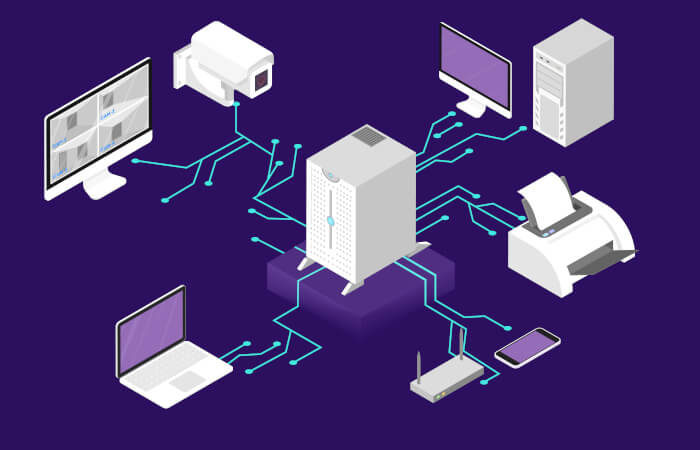Ceph is an open source, unified, distributed storage, massively scalable system designed for excellent performance, reliability and scalability.
Ceph’s main goals are to be completely distributed without a single point of failure, scalable to the exabyte level, and freely-available. The data is seamlessly replicated, making it fault tolerant.
It is comprised of an object store, block store, and a distributed file system. Ceph runs on commodity hardware, it is self-healing and self-managing, and has no single point of failure.
Ceph’s file system runs on top of the same object storage system that provides object storage and block device interfaces.
Features include:
- RADOSGW – a bucket-based REST gateway, that is compatible with applications written for S3 and Swif.
- RADOS Block Device (RBD) – provides access to block device images that are striped and replicated across the entire storage cluster.
- Ceph FS – provides a POSIX-compliant network distributed file system, with a Linux kernel client and support for FUSE. Ceph FS uses the same RADOS object storage device system as RADOS block devices and RADOS object stores such as the RADOS gateway with its S3 and Swift APIs, or native bindings.
- RADOS – an autonomic, distributed object store. RADOS, is the object storage component for CephFS filesystems, Ceph RADOS Gateways, and Ceph Block Devices. Ceph’s RADOS Object Stores consist of two types of daemons: Object Storage Daemons (OSDs) store data as objects on storage nodes; and Monitors maintain a master copy of the cluster map.
- Librados – a library allowing applications to directly access RADOS.
Website: ceph.io
Support: Documentation
Developer: Sage Weil, Yehuda Sadeh Weinraub, Gregory Farnum
License: GNU Lesser General Public License v2.1
Ceph is written in C++. Learn C++ with our recommended free books and free tutorials.
| Popular series | |
|---|---|
| The largest compilation of the best free and open source software in the universe. Each article is supplied with a legendary ratings chart helping you to make informed decisions. | |
| Hundreds of in-depth reviews offering our unbiased and expert opinion on software. We offer helpful and impartial information. | |
| The Big List of Active Linux Distros is a large compilation of actively developed Linux distributions. | |
| Replace proprietary software with open source alternatives: Google, Microsoft, Apple, Adobe, IBM, Autodesk, Oracle, Atlassian, Corel, Cisco, Intuit, SAS, Progress, Salesforce, and Citrix | |
| Awesome Free Linux Games Tools showcases a series of tools that making gaming on Linux a more pleasurable experience. This is a new series. | |
| Machine Learning explores practical applications of machine learning and deep learning from a Linux perspective. We've written reviews of more than 40 self-hosted apps. All are free and open source. | |
| New to Linux? Read our Linux for Starters series. We start right at the basics and teach you everything you need to know to get started with Linux. | |
| Alternatives to popular CLI tools showcases essential tools that are modern replacements for core Linux utilities. | |
| Essential Linux system tools focuses on small, indispensable utilities, useful for system administrators as well as regular users. | |
| Linux utilities to maximise your productivity. Small, indispensable tools, useful for anyone running a Linux machine. | |
| Surveys popular streaming services from a Linux perspective: Amazon Music Unlimited, Myuzi, Spotify, Deezer, Tidal. | |
| Saving Money with Linux looks at how you can reduce your energy bills running Linux. | |
| Home computers became commonplace in the 1980s. Emulate home computers including the Commodore 64, Amiga, Atari ST, ZX81, Amstrad CPC, and ZX Spectrum. | |
| Now and Then examines how promising open source software fared over the years. It can be a bumpy ride. | |
| Linux at Home looks at a range of home activities where Linux can play its part, making the most of our time at home, keeping active and engaged. | |
| Linux Candy reveals the lighter side of Linux. Have some fun and escape from the daily drudgery. | |
| Getting Started with Docker helps you master Docker, a set of platform as a service products that delivers software in packages called containers. | |
| Best Free Android Apps. We showcase free Android apps that are definitely worth downloading. There's a strict eligibility criteria for inclusion in this series. | |
| These best free books accelerate your learning of every programming language. Learn a new language today! | |
| These free tutorials offer the perfect tonic to our free programming books series. | |
| Linux Around The World showcases usergroups that are relevant to Linux enthusiasts. Great ways to meet up with fellow enthusiasts. | |
| Stars and Stripes is an occasional series looking at the impact of Linux in the USA. | |
